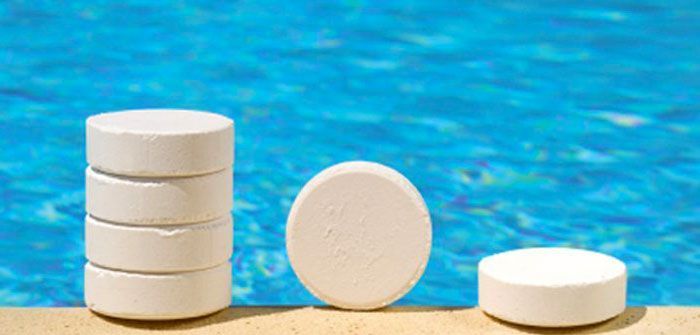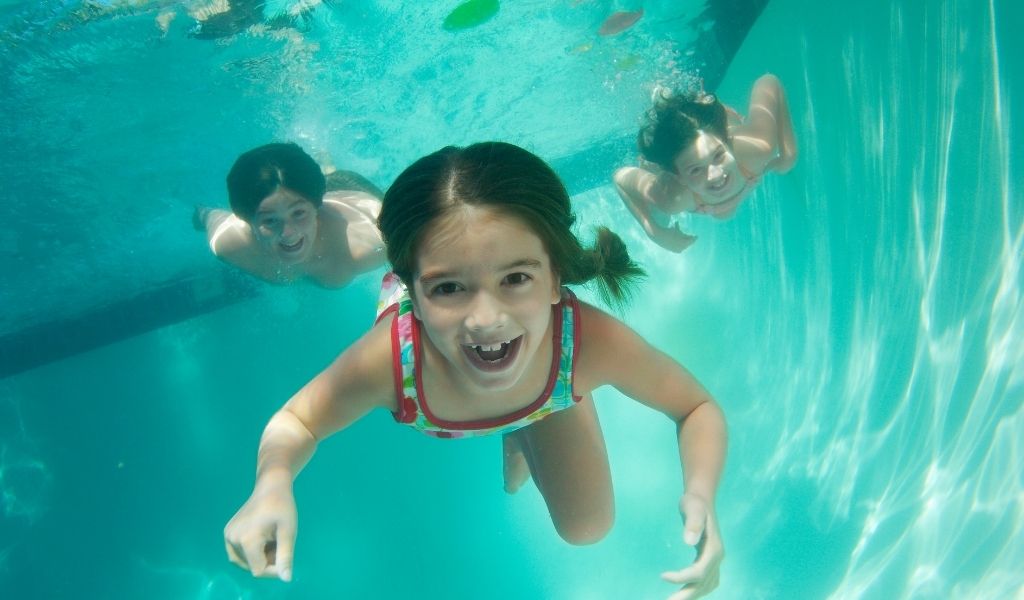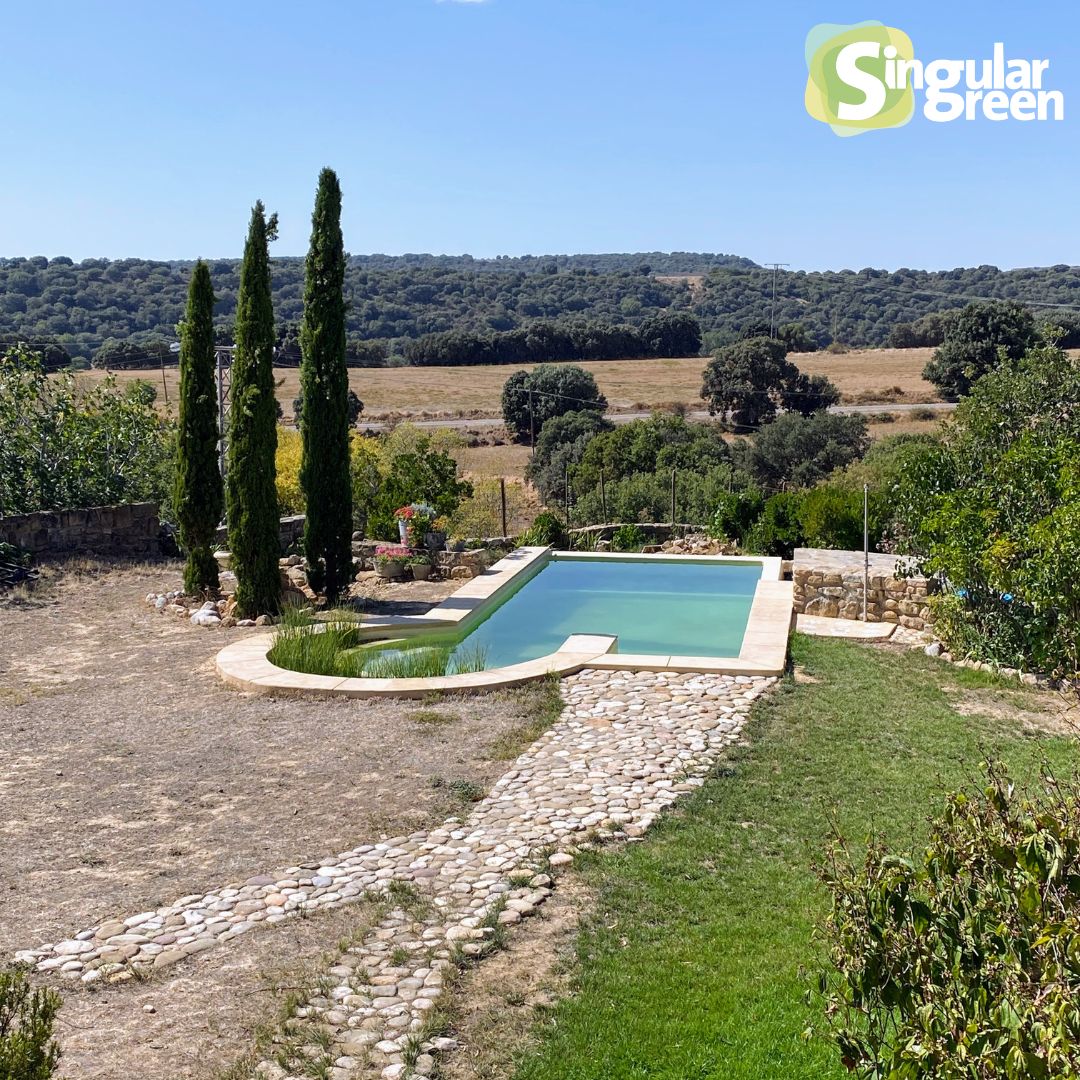Pool water treatment has traditionally been dominated by the use of chlorine, but more and more people are looking for safer and more natural alternatives to keep their pool in top condition.
In this article, we will explore the reasons why chlorine may not be the best option and look at the most effective and environmentally friendly alternatives available on the market.

Problems Associated with the Use of Chlorine in Swimming Pools
At the beginning of 2022 a new regulation on chlorine tablets came into force in Spain prohibiting the sale of products with a concentration of boric acid higher than 0.3%. This is because the European regulation on the use and marketing of biocides has been revised and it has been determined that a concentration of more than 0.3% can cause harmful effects on human health.
Chlorine is widely used because of its ability to kill bacteria and keep water clear. However, this chemical has several disadvantages that can affect both the health of bathers and water quality.
Impact on Respiratory Health
Chlorine can have adverse effects on respiratory health, especially in young children. When getting out of the pool, we’ve all experienced the sensation of dry skin and red eyes, but what many are unaware of is that prolonged exposure to chlorine can even lead to breathing difficulties. This is particularly worrying for young children, who, by swallowing more water while swimming, are more susceptible to developing asthmatic symptoms. Inhalation of chloramine, a by-product of chlorine, can aggravate these problems, causing asthma and other respiratory conditions.
Skin and Eye Damage
Chlorine also has a negative impact on the skin and eyes. This chemical deteriorates the skin’s protective oil mantle, leaving it dry and more susceptible to irritation. It can also cause irritant conjunctivitis, characterised by itching, redness and tearing, due to excessive exposure to chemicals in the water. Even in normal concentrations, chlorine can damage the skin, especially if measures such as showering after bathing and applying moisturiser are not taken.
Effects on Teeth and Hair
Chlorine affects not only skin and eyes, but also teeth and hair. In chlorinated pools, it is common for teeth to turn yellowish, a phenomenon known as ‘swimmer’s tartar’. This occurs because the pH of the pool water is slightly higher than the pH of saliva, leading to increased tartar build-up. If good dental hygiene is not maintained, this tartar can cause stained teeth and swollen gums. In addition, chlorine can dry out hair, making it more brittle and, in some cases, change hair colour, especially in people with lighter shades.
Non-Chlorine Cleansing Options
Fortunately, there are pool purification methods that do not require chlorine or other harsh chemicals. These alternative systems are not only safer for your health, but also more environmentally friendly.
Natural pools or Biopools
Natural pools, also known as biopools, are an excellent alternative to chlorine. These pools use plants and micro-organisms to keep the water clean and free of pollutants. According to the Naturalised Bathing Water Association, this type of pool excludes all elements that destroy the biodiversity of the water, offering a more natural and healthy bathing experience.
In these pools, water purification is carried out through a biological filtration system, where aquatic plants act as a natural filter. This approach is not only effective, but also creates an aesthetically pleasing and completely chemical-free environment.
Salt Electrolysis Systems
Another popular alternative is salt electrolysis, a system that converts salt into chlorine through an electrolytic process. Although chlorine is still technically used, the concentration is much lower than in traditional treatments, which significantly reduces negative side effects. This method is gentler on skin, eyes and hair, and keeps the water clean and disinfected.
- Benefits:
- Low maintenance.
- Lower concentration of chlorine.
- Less aggressive to skin and eyes.
Ionisation and Oxidation
Ionisation and oxidation are other effective alternatives to chlorine. In ionisation, copper and silver ions are released into the water, which kill bacteria and algae without the need for chemicals. Oxidation, on the other hand, uses active oxygen to break down contaminants in the water. Both systems are highly effective and can be used in combination to ensure complete water purification without the side effects of chlorine.
- Ionisation:
- Use of copper and silver ions.
- Removes bacteria and algae.
- Oxidation:
- Decomposition of pollutants with active oxygen.
- Purification without chemicals.
Comparison of Chlorine Alternatives
When choosing the best alternative to chlorine, it is important to consider several factors, such as cost, maintenance, efficiency and sustainability of each system.
Cost and Maintenance
- Salt Electrolysis: Cheaper and requires less maintenance.
- Natural Pools: Costly to install, but offer a chemical-free environment.
Efficiency and Sustainability
Biopools and ionisation/oxidation systems are the most sustainable options, as they are not only safe for bathers, but also protect the environment. These methods ensure effective water purification without the addition of artificial chemicals.
Conclusion: The Best Alternative for Your Pool
There are multiple alternatives to chlorine to keep your pool clean and safe. From natural pools to salt electrolysis and ionisation systems, each option has its advantages and disadvantages. The key is

Whether you opt for a bio-pool or an ionisation system, the important thing is that you enjoy your pool with the peace of mind of knowing that you are taking care of both your health and the environment.
This is the case of natural pools or biopools, defined by the Naturalised Bathing Water Association as a type of pool that excludes all types of elements that destroy the biodiversity of the water, whose main objective is to offer bathing quality water in accordance with European legislation and international regulations.
If you want to know more about the different types of pool purification systems, take a look at our last article.







